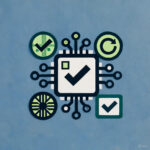Our Approach
Housed within UMBC, a reputed public university, the ESL operates independently of the software industry’s profit-driven motives. Our certification process scrutinizes software and hardware alike, offering an unbiased assessment of ethical compliance. Additionally, we demystify terms of service agreements, making it easier for everyone to understand their rights and what they’re agreeing to when using software. We adhere to a set of rigorous standards that define what makes software ethical. These standards are designed to protect users, promote transparency, and ensure software integrity.
Below are the Seven Attributes that every piece of software must meet to be considered ethical in our evaluation:
|
|
Honesty & Transparency | It only does what it says it does: Software must be honest and transparent in its functions and operations, avoiding any deceptive practices. |
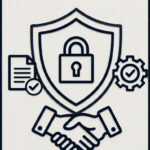 |
Privacy Protection
|
It protects the user’s privacy: User privacy is paramount, and software must safeguard personal information diligently.
|
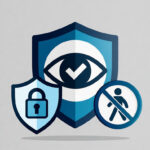 |
No Unauthorized Monitoring |
It does not use hardware or software to monitor the user environment: Respect for user autonomy means no unauthorized surveillance or monitoring.
|
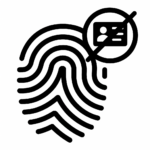 |
Consent-Based Identification |
It doesn’t use their data for profit without their consent: Ethical software respects the ownership and privacy of user data, requiring explicit user consent for its use in profit-making activities.
|
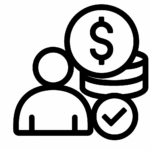 |
No Data Monetization
|
It does not consume their computational resources without need or consent: Software should use system resources judiciously, with a clear necessity or user permission.
|
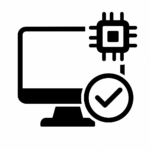 |
Responsible Resource Use |
It does not consume their computational resources without need or consent: Software should use system resources judiciously, with a clear necessity or user permission.
|
 |
Energy Efficiency & Sustainability |
It consumes computational resources in an energy-efficient and sustainable way: Beyond efficiency, ethical software also commits to sustainability, minimizing its environmental impact.
|
These attributes guide our certification process, ensuring that software not only serves its intended purpose but does so in a way that aligns with our ethical standards. Through this approach, we aim to elevate the standard for software development and usage, making ethics a central pillar of the digital age.Experience the future of ethical software certification by using our beta service. This initiative offers a glimpse into how the ESL evaluates software’s ethicality. Your feedback will be instrumental in refining our methodologies, shaping a future where digital ethics are not only transparent but equitable and universally applied.
Join us in this crucial step towards a more ethical digital world.
The lab will give users and the public confidence that software is doing only what is intended and to know their rights and privacy under the terms of service. As an independent certification mechanism housed within UMBC, a public university, tests will be made to software and hardware independent of considerations for profit or reputation. Terms of service agreements will be decoded and summarized for ease of understanding so users can quickly understand what privacy they may be giving up and can make informed choices.
The lab aims to give users and the public confidence that software is operating exactly as intended while helping them understand their rights and privacy under various terms of service agreements. As an independent certification mechanism housed within UMBC, a public university, the lab will conduct impartial testing of both software and hardware free from any influence of profit or reputation.
Additionally, terms of service agreements will be decoded and summarized in clear, user-friendly language, enabling users to quickly grasp what data or privacy rights they may be relinquishing and to make informed decisions accordingly. Version 1.0 of the system will include functionality to generate DNL labels automatically from a simple text file provided by the user, making the certification and labeling process more accessible and efficient.
